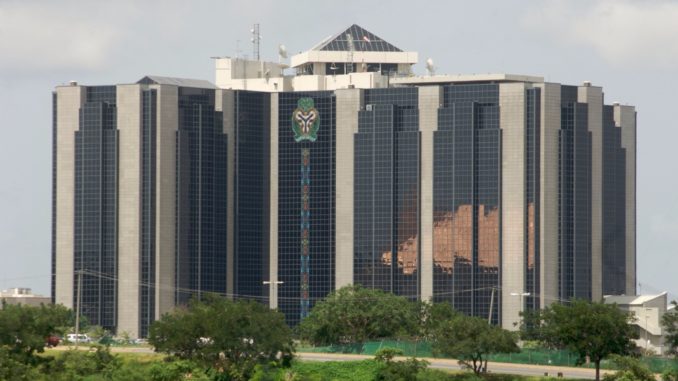
How much of the conversation, going forward, will benefit from the fact that the deputy governor nominee is uncommonly qualified for the function? For too long the banking sub-sector of the financial services landscape has been tapped for central bank talent.
The recent nomination of a new deputy governor-designate for the Central Bank of Nigeria (CBN) is an auspicious occasion for taking a second look at the current state of domestic monetary policy. The picture one starts with is not positive. As with the CBN’s intervention funds, there is a strong risk that originally well-intended policies have taken on a life of their own and are now running in the teeth of the goals for which they were conceived.
Going on decades now, the CBN has come to describe price stability in terms largely of the naira’s external price. Which boils down in the end to how much summer holidays Nigerians may buy? How many children/wards may be sent to school abroad? And how many exotic cars (and slices of pizza) may be imported? All middle class concerns. And all legitimate aspirations, too, given the middle class’ loud voice and preparedness to vote with its feet. It is within this context that central bank’s many windows for access to foreign exchange, reassure policy makers that they may not also be ignoring the needs of the larger citizenry. Especially when one of these windows supports lower-than-market petrol prices.
Irrespective of the original concept, a house with too many windows presents massive security challenges. Least of all the threat to social cohesion from the spending habits of those with access (arbitrage) to multiple windows. If the risk of bandits gaining access through one window in order to leverage exit through another is one that managers of the foreign exchange markets have become adept at managing, the same cannot be said of the many other windows the CBN is standing watch over. It could just as well be argued, for instance, that arbitrage opportunities from the central bank emplacing two interest rate environments (a positive one for foreigners and a negative one for locals) are likely to be few and far between.
But no one can deny the threat to the economy from this profusion of windows. Yet, the framers of the current monetary policy regime point to so much dosh sloshing about bank vaults as a result of this policy and check the “success” box. Then, they conflate “excess liquidity” in banks with the newly high loan-to-deposit ratio imposed on banks by the central bank, before holding out the promise of improved lending to the real sectors of the economy. But look more critically at what bank depositors are doing with the new monies sitting in their accounts, and the case for sounding the alarm was made months back.
Across the financial services space, high return schemes are being peddled far more fashionably than were tulip bulb contract prices in 17th century Holland. No one knows where the risks of these new instruments sit. But most are convinced that the risks inherent in them are far higher than their subscribers have paid attention to. No one thinks that they qualify as insured bank deposits. And so, the market expects many a punter to lose his/her shirt. The only unknown is how soon.
Should we also be sounding another alarm? On a very serious note, the extent to which the federal government may have leaned on the central bank to finance its deficit is worrisome. Indeed, some argue that insofar as the current levels of the CBN’s funding of government breaches the provisions of the law for ways and means advances, all of it might well be illegal, if not criminal. And so, the central bank is complicit in the build-up of local currency liquidity in the system. For what it is worth, I’ve run into readings of this liquidity glut that put a premium on how it helps depress bank rates. As far as we can tell, deposit rates have fallen far more precipitously than have lending rates under prevailing monetary conditions. We are obviously not a low rate economy despite the CBN’s best exertions. It is debatable whether artificially forcing rates down does more than simply worsen the poor incentive structure already in place.
While this latter argument denies plenty of puff to the sails of those who would want a continuation of current policy, need we remind ourselves that the beef in the literature against the glad-handing by central banks to government of fiat money is that it drives domestic prices up. It makes the poor poorer. It prevents businesses from investing long term. And in saner climes, rising inflation is met by tighter monetary policy. The current central bank leadership has eviscerated many of the givens of the dismal science in pursuit of a novel heterodoxy. Yet it cannot apply sticking plaster to the fact that the nation’s misery index worsens daily despite its best effort. And, who know, may be because of this effort.
How much of the conversation, going forward, will benefit from the fact that the deputy governor nominee is uncommonly qualified for the function? For too long the banking sub-sector of the financial services landscape has been tapped for central bank talent. With the rather perverse consequence that monetary policy has increasingly been described in terms of how well it helps to preserve bank solvency. It, thus, matters a lot that the new deputy governor to-be is a credentialed economist, and it will help the country’s near- to medium-term outlook that we have in place in the central bank someone who may finally be able to impress on the federal government that fiscal discipline is essential for good monetary policy.
Uddin Ifeanyi, journalist manqué and retired civil servant, can be reached @IfeanyiUddin.
END

Be the first to comment